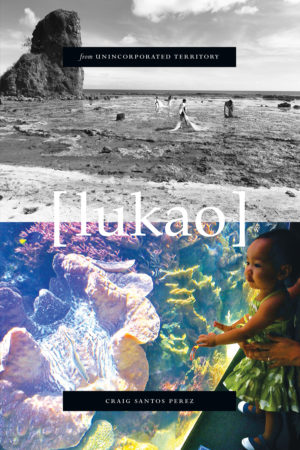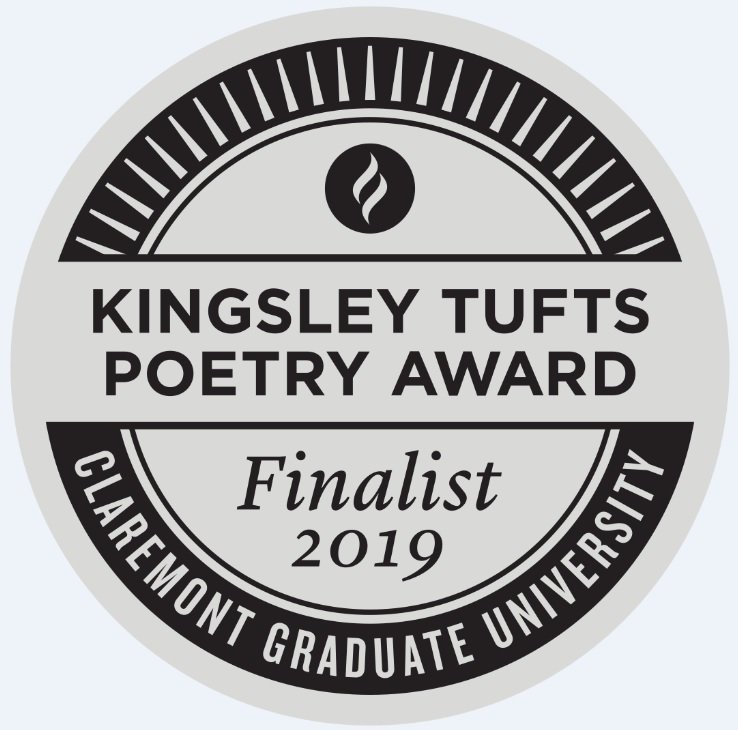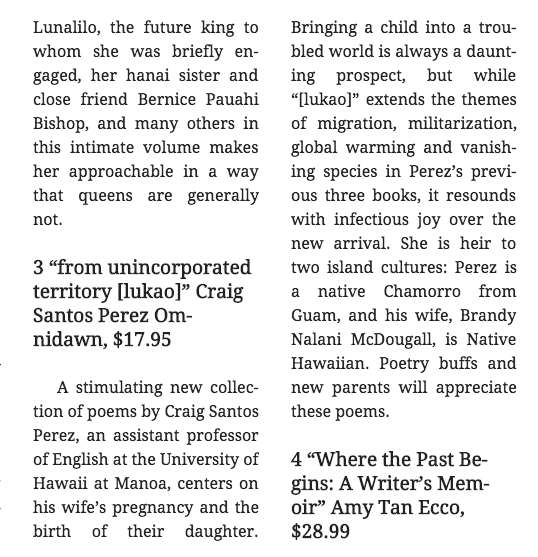Book Four
from unincorporated territory [lukao]
Omnidawn (2017) | Purchase

~
from unincorporated territory [lukao] is the fourth book in native Chamorro poet Craig Santos Perez’s ongoing series about his homeland, the Western Pacific Island of Guåhan (Guam), and his current home, Hawaiʻi. He utilizes eco-poetic, decolonial, diasporic, indigenous, documentary, epic, and avant-garde modes to weave stories of creation, birth, migration, food sovereignty, and parenting. This work not only protests the devastating impacts of colonialism, militarism, and environmental injustice across the Pacific, it also expresses a vision of a sustainable and hopeful future.
~
ACCOLADES

- Hawaiʻi Literary Arts Council Elliot Cades Award (2018)
- Kingsley Tufts Poetry Award (Finalist, 2019)
- Best Books in World Literature, World Literature Today (2018)
- Best Poetry Books of 2017, NPR Books
- Favorite Book of 2017, Powell’s Books
- Best Poetry Collections of 2017, MPR News
- Notable Book of 2017, Honolulu Star Advertiser (2017)
MEDIA
- The Guam Daily Post: “Chamoru Author Reflects on the Birth of Guam” (2017)
- Pacific Daily News: “Author Writes Poetry Books on Chamorro Identity and Migration” (2017)
- Civil Beat Hawaiʻi: “The ‘Invisible’ Chamorro Poet Brings An Urgency To Island Culture” (2017)
INTERVIEWS
- Kenyon Review (2019)
- 32 Poems (2018)
- Under a Warm Green Linden (2017)
- Lithub & The Lifted Brow (with Chen Chen, 2017)
~
BLURBS
Perez writes “Hinasso” (imaginaton, thought, memory, or reflection) painted forwards+backwards and out-scribed in multiple dimensions. Yes, it is true and possible in the land of the Chamorro, in the terrain, mind, culture once colonized, “kidnapped,” and now re-called and re-created by its own will-spirit walk here, in this “procession,” in this knowledge-song, carved Chamorro walk-talk-map. There is birth, incision, interview, and voice-with-voice and the ripping out of origin charters faked and overlaid over the roots of Guam. As pilgrimage steps are drummed with sacrifice and vision-life, you too must walk these lines that Perez offers. An impossible sacredness in this book, drawn from the collective-body-cartography, is written. Ground-shaking, delight of breath and ecstatic heart. Mahalo, Craig Santos Perez, Mahalo for lifetimes.
—JUAN FELIPE HERRERA
This fourth collection, unincorporated territory [lukao] by Craig Santos Perez, marks a dramatic shift in this “unincorporated” series. Four marks stability, a coming of age, and these poems map a kind of ceremonial establishment of a person becoming in his/her community. This book is an essential creation story, which is about the birth of a daughter, who is also the ocean, who is evidence of ancestors and ties back to the beginning. Therefore, the poet, family, ocean, earth, and readers are in procession to understanding, despite environmental assaults that include ubiquitous consumption of Spam, and the poisoning of food and the ‘aina in indigenous communities for money profit. This collection is also praise song of becoming for a daughter, so that she knows who she is and where she comes from—What a gift!
—JOY HARJO
[lukao] is the fourth in Craig Santos Perez’ brilliant series, from unincorporated territory, a lyric fusion of languages sung both forwards and backwards into ancestral and diasporic histories of the Chamorro; the birth of the poet’s daughter (wherein the poet generates a form commensurate with labor and birth); the disappearance of birds (wherein a fledgling kingfisher hatched inside an incubation machine is fed by keepers from tweezers protruding beneath the beak of an oversized kingfisher hand puppet); and, with fierce humor, meditations on the consumption of spam (wherein the poet harrowingly reveals how that canned meat gets made). With his other hand, Perez deftly provides helpful maps and island histories of colonization and militarization (wherein rain clouds baptize guam/in strontium-90 fallout). It’s all here. The island of Guam has been renamed Guahan which means we have, as in we now have in our hands the work of one of the most magically original poets writing among us.
—CAROLYN FORCHÉ
~
REVIEWS
- Anomaly, by LynleyShimat Lys (2018)
- Poetry Project Newsletter, by Timothy Otte (2018)
- Hyype, by Kelsey May (2018)
- The Boston Review, by Emily Wolahan (2018)
- Rain Taxi, by Robyn Maree Pickens (2018)
- Tarpaulin Sky, Camille Dungy (2018)
- Newfound Journal, “The Birth and Life of an Island,” by Josh King (2017)
- The Friday Influence, by Jose Angel Araguz (2017)
~
The latest installment by native Chamorro poet Craig Santos Perez, [lukao] dons many genres. From shape poems and snatches of interviews to historical “introductions” and periodic “poemaps” that visually trace the paths of US military bases and the leak of toxic chemicals, Perez’s staunchly indigenous and decolonized verse personalizes and exposes legacies of exploitation on his home island of Guam and in the western Pacific.”
—World Literature Today
This is a devastating work. [Lukao] is the fourth in an interconnected series by native Chamorro poet Perez about his homeland, the unincorporated US territory of Guam (Guahån). Its focus is on processions and the ceremonial passage of time — creation, birth, and marriage, destruction, extinction, and militarization. Perez is a powerful voice of indigenous Pacific Island resistance.
—Powell’s Books
Native Chamorro poet Santos Perez unveils the fourth book in his series about his homeland, Guåhan (Guam), and his current home, Hawaii. He utilizes eco-poetic, decolonial, diasporic, indigenous, documentary, epic, and avant-garde modes to weave stories of creation, birth, migration, food sovereignty, and parenting.
—Alex Crowley, Publishers Weekly
“Centered on the birth of his daughter, this collection is first and foremost a family story and creation tale, albeit one in which the details of Guam’s ecological and cultural degradation, American militarism and capitalism, and the diaspora of the Chamorro people and language continue to play an important part.”
—Publishers Weekly
The fourth installment in his series of poetry books about his homeland, Guam, and his current home, Hawai’i, from incorporated territory [lukao] is a collection of poems that interweave anxieties about colonialism, militarism, and the environment, composing a work that is “ground-shaking, delight of breath and ecstatic heart.”
—Asian American Writers Workshop

